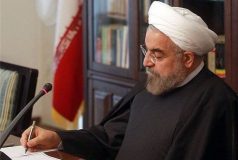Iranians welcome dual-fuel cars as gas prices rise
TEHRAN – Head of National Iranian Oil Products Distribution Company (NIOPDC) says since the implementation of the gasoline rationing scheme and the increase in the prices, people are leaning more toward dual-fuel cars.
“The demand for converting single-fuel cars into dual-fuel ones has also grown due to the rationing and rising gas prices,” Amir Vakilzadeh said in an interview with the state TV on Sunday night.
According to the official, since the implementation of the rationing program in mid-November, over 70,000 people have registered their cars for dual-fuel conversion.
“Fortunately, in the past two years we have been preparing the infrastructure needed to implement such a program and, using our previous experiences, we have designed a system for this purpose,” Vakilzadeh said.
In the conversion program, we determine which vehicles are allowed to register so that they could obtain a certificate and get the traffic police approval for conversion into dual-fuel cars, he explained.
Mentioning the country’s great capacity for promotion of using gas-fuel vehicles, Vakilzadeh said currently, about 21.2 million cubic meters of compressed natural gas (CNG) is supplied to gas-fuel and dual-fuel vehicles on a daily basis, and given the increase in the number of CNG stations in recent years, it is possible to double this capacity up to more than 45 million cubic, he said.
In late November, the head of NIOPDC’s CNG promotion program said CNG consumption in the country increased by 10 percent since the implementation of the gasoline rationing scheme.
Speaking in a press conference, Hassan Gholipour put the average consumption of CNG in the month prior to the gasoline rationing implementation at 19.3 million cubic meters per day (mcm/d) and said the figure has now risen to about 22 mcm/d.
The Iranian government started, On November 13, rationing of subsidized gasoline and increased fuel prices as it plans to use the revenue for supporting underprivileged families.
Mohammad Baqer Nobakht, head of the Planning and Budget Organization, said on November 12 that proceeds from the price hikes would be used to fund additional subsidies for 18 million underprivileged families, or about 60 million people.
EF/MA
- entehaj admin
- کد خبر 105249
- پرینت





